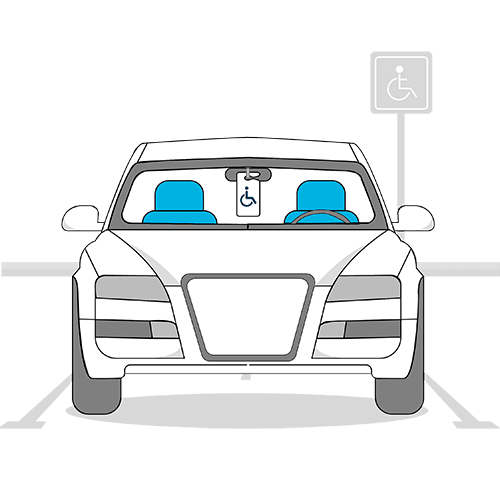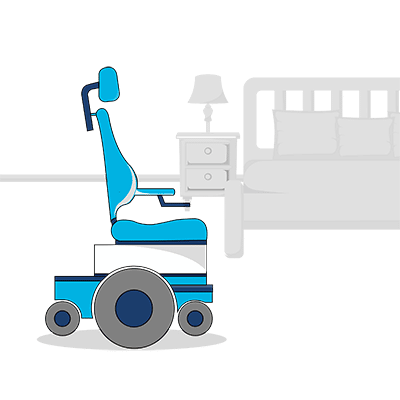Ensuring fair practice when it comes to disability in the workplace should be a top priority for all employers. If you’re an employee with a disability (whether visible or invisible) know that you have equal workplace rights, including to minimum wages and conditions of employment.
Everyone has the right to feel valued, productive and safe from bullying, discrimination and harassment in the workplace. Employers have a responsibility to make reasonable adjustments in the workplace to ensure people with disability have what they require to perform their duties. There are lots of factors that combine to give everyone involved the best chance at a smooth working relationship.
Here’s a guide to disability in the workplace if you need to arm yourself with knowledge.
Disability in the workplace: Do you have to disclose your disability?
As someone with a disability you’re not legally obligated to disclose this to your employer unless it affects your ability to undertake the role’s responsibilities. The same applies when you’re applying for jobs.
However, even if you can still complete the tasks required, it’s advisable to let your employer know about your disability if you need changes made to the workplace to help you do your job effectively.
It’s unlawful for any employer to discriminate against a job applicant because of a disability. You can write ‘not applicable’ for any disability that will not have any impact on your work.
With disclosure, the key question to answer is whether you’ve the capacity to perform the role’s normal duties.

What about when a disability affects a job?
You should disclose a disability if it has or will have a direct impact on your ability to complete the job requirements.
For example if a job requires employees to do heavy lifting without injuring themselves and your disability affects your ability to do this, you’d need to disclose this. Similarly, potential employees with mental health conditions aren’t legally required to disclose these unless it affects their capacity to fulfill the job’s responsibilities.
Be honest
If you’re asked about a pre-existing disability or illness that could affect your ability to do a job and you fail to respond honestly, you could lose out. Owen Hodge Lawyers says, “If you are untruthful on your application about your ability to do a job, you may end up being dismissed. The laws protecting privacy and prohibiting discrimination on the basis of disability are no protection from this.”
Be realistic
As with anyone who wants to enjoy the benefits of employment, think carefully about what the role requires. Can your strengths and weaknesses fit the bill? You don’t want to land a job that you can’t perform well in. This will affect your confidence and job satisfaction. Instead, you want something that harnesses your talents and helps you shine.
Find something that best suits your individual circumstances and an employer that’s happy to work with your needs.
Also think about it from the employer’s perspective if possible. Can you give them what they need for the role, for the business to be successful?

Adjustments for disability in the workplace
It’s important for employers to realise that a person with disability could have:
- A physical, psychological or neurological disease or disorder
- An illness, whether temporary or permanent
- An injury, including work-related injuries
The disability or disabilities might be obvious to see or they may be ‘invisible’. Read about these in our Invisible Disability Week article.
Employers are legally obligated to make ‘reasonable adjustments’ in the workplace that will ensure people with disability are able to work safely and productively.
Examples of reasonable workplace adjustments
An adjustment is any change that an employer needs to make for a person with disability. This can include making changes to the way work hours are structured, to the performance requirements of the job or to the physical working environment.
Examples of reasonable adjustments are:
- Introducing flexibility to work hours.
- Providing telephone typewriter (TTY) phone access for employees with hearing or speech impairments.
- Buying screen reading software for employees with a vision impairment.
- Allowing people with chronic pain or fatigue to take more frequent breaks.
- Ensuring the workplace has wheelchair access.
- Provide height adjustable desks for people using a wheelchair. If you’re planning to buy new equipment read our article on wheelchair funding.

Disability discrimination in the workplace
An employer could land on the wrong side of the law if they’re found discriminating against an employee or potential employee because of their disability.
Some examples of discriminatory situations are:
- Not employing someone because of their disability.
- Subjecting an employee or potential employee with a disability to different and unfair terms of the job compared to other employees.
- Treating an employee with disability differently to other employees.
- Deliberately placing an employee with a disability at a disadvantage by not approving leave.
- Firing an employee because of their disability.
If you’re an employer then it may be worthwhile revisiting your company’s policies to ensure you’re creating a safe and productive environment for employees with disability.
If you’re an employee who lives with disability know your rights and be sure to explain your needs to your employer or potential employer.
Consider insurance for added peace of mind
Blue Badge Insurance prides itself in focusing on protecting the mobility and independence of people with disability and restricted movement. Consider getting our wheelchair insurance, mobility scooter insurance or disability car insurance to safeguard your finances when life throws curveballs.
Why not get a quick quote then read about how disability car insurance cover is different.








